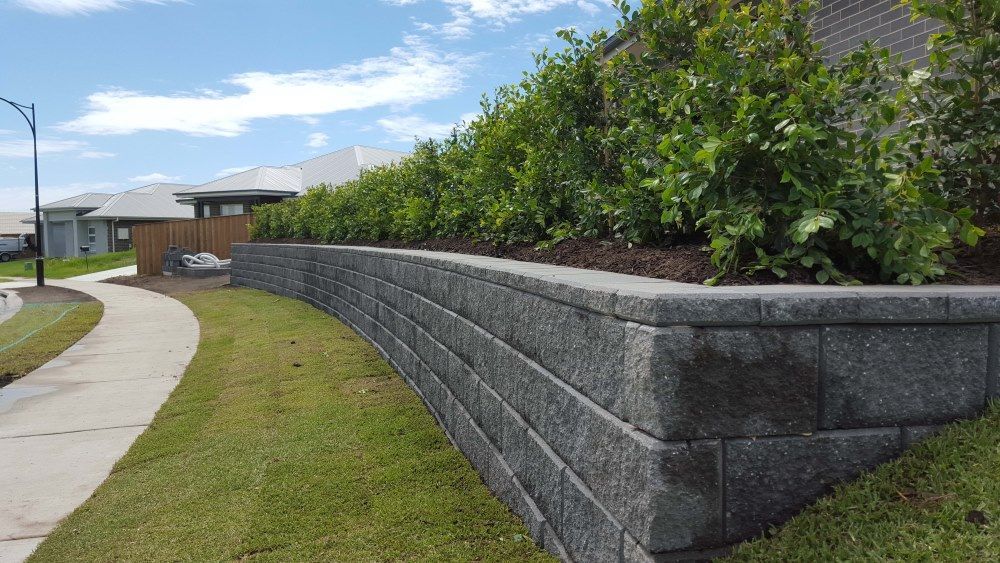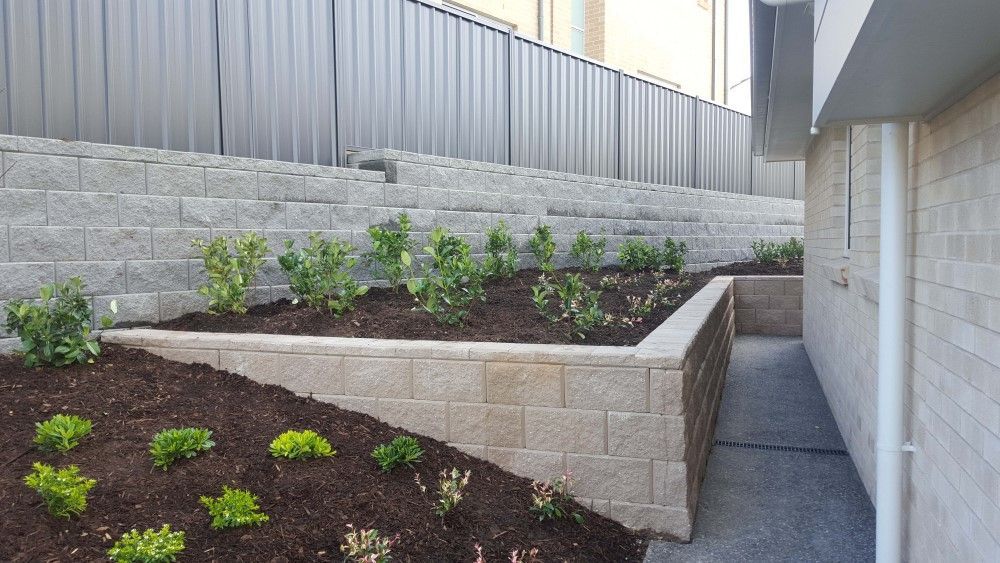Retaining Walls in Newcastle
- Complete start-to-finish landscaping solutions
- Trusted local network of tradesmen
- Structured process with quality outcomes
NEWCASTLE RETAINING WALLS
Sloping ground, erosion, and unusable space — good retaining walls don’t just solve problems, they unlock your yard’s potential. At Green Envy Landscape & Garden Services in Newcastle, we create retaining walls that stabilise soil, form level areas, and lay the foundation for beautiful, functional outdoor spaces you can enjoy for relaxing, entertaining, or playing.
Working across Newcastle and Lake Macquarie, we manage site assessment, drainage, and engineering coordination where needed, as well as selecting the right materials — from concrete sleeper systems to block, stone, or timber finishes. By collaborating with a trusted local network of tradesmen and external designers, we ensure that every wall is built to suit your site, style, and budget.
- Engineered for stability
- Built for drainage
- Finished to suit the style
Retaining walls are often the backbone of bigger works, so we can integrate yours into full landscaping projects, new turf installation, fake grass installation, or broader backyard landscaping upgrades. We don’t sell loose materials; we build complete solutions that perform.
Ready to reclaim more usable outdoor space? Call Green Envy Landscape & Garden Services on
0412 606 754 and let’s get started.
Smart Retaining Walls To Shape Space
The difference between a retaining wall that lasts and one that fails usually comes down to what’s behind it. For long-term stability, we assess soil and wall load, then dig footings to depth and add stabilising fabric or reinforcement where needed.
Drainage is critical: a perforated pipe (agg line), free-draining gravel, and weep holes release water before pressure builds. We match materials to use and style—concrete sleepers for long or high runs, block systems for curves, stone for character, and treated timber for lighter areas.
Taller walls or those near boundaries may need council approval; we’ll guide you and coordinate engineering. We also tie the wall into steps, garden beds, turf levels and paving so the whole landscape works as one.
- Site grading & footings
- Drainage & backfill systems
- Material & compliance guidance
Well-built retaining walls expand usable outdoor space, protect structures and boost property value. Tell us what you need to support, level or frame, and we’ll guide you through options.
Frequently Asked Questions
What is the purpose of a retaining wall?
A retaining wall is a structural feature designed to hold back soil and manage changes in elevation across a property. These walls are commonly used to prevent erosion, create level areas on sloped land, and manage water runoff. They also serve a decorative purpose, helping to define garden beds or outdoor living zones. Retaining walls can enhance both the functionality and appearance of a landscape, making them ideal for properties with uneven ground or drainage issues. When built correctly, they improve stability and create more usable space in your yard.
Do I need council approval to build a retaining wall?
Council approval may be required for retaining walls, depending on their height, location, and the materials used. In many areas, walls over 600mm high or those near property boundaries require development approval and possibly engineering certification. Walls that retain large amounts of soil or alter natural drainage patterns may also trigger approval requirements. It's important to check with your local council before construction begins to avoid compliance issues. A professional landscaping contractor can help guide you through the approval process and ensure all regulations are met.
What are the best materials for building a retaining wall?
The best material for your retaining wall depends on your landscape style, budget, and structural needs. Common options include concrete blocks, treated timber, natural stone, and rendered brick. Concrete and stone are highly durable and suited to long-term structural use, while timber offers a natural look but may require more frequent replacement. Interlocking concrete blocks are popular for DIY-friendly builds, while engineered systems are preferred for larger or load-bearing applications. Your choice should consider both appearance and performance over time, especially in areas with significant water runoff or soil movement.







